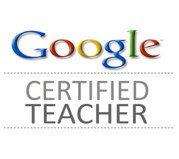Cross-posted from edjewcon.org/cesjds with some edits

It's January, and I am wrapping up work with a cohort of teachers from Charles E. Smith Jewish Day School. The cohort of four teachers has been experimenting with professional blogging, learning the ins and outs, the challenges and the rewards. For our last session together, we are taking the time to reflect and discuss what we've learned. I first had the idea for a #comments4teachers post and hashtag after our first meeting in August, but I didn't act immediately on the idea and, as these things tend to do, it lost its urgency. However, as I listened to the teachers discussing what they've learned, I reflect that perhaps, in my role of coach, I might have done more to connect my students (the teacher-bloggers) to that elusive "authentic audience."
Here's the thing: we blog for ourselves- to document our learning, to sort through our thoughts, and, as Alexis articulated, to be able to share our organized ideas with others easily when they contact us at other points in time. But, we also tend to write for an audience (that is not ourself) because it's a natural part of the exchange that is reading-writing.
The #comments4kids hashtag is a brilliant and popular movement to bring that authentic audience and interaction to the blogs of young (kid) students. It requires both give and take; if you use the hashtag to bring commenters to the blogs of your own students, you should be so thoughtful as to reciprocate by taking time to leave comments for the students of other teachers.
But what about adult bloggers who are sharing publicly via blogging for the first time? For many teachers, blogging their professional learning and reflections feels quite risky. They don't know who is reading. Is anyone interested? Will they be judged?
I read a lot of posts that urge teachers to blog. However, I wonder if the writers of those posts make the effort to encourage those teachers who do take the jump. It's easy to say that teachers should write and share just for the sake of being transparent, joining the big online conversation. Yes, teachers are adults and professionals; maybe we think they shouldn't need comments or encouragement. But blogging is a huge commitment of time and energy; a little positive reinforcement from the outside world might go a long way.
So, I'm suggesting here a new hashtag #comments4teachers. If you believe that teachers should blog, take a few minutes each day or maybe once or twice a week and search for this hashtag. In a culture of learning, teachers ARE students and, while they might not be kids, I guarantee that they will appreciate a quality comment. Let's do more than just write posts about why teachers should blog. Let's encourage the ones who are climbing out on that limb!





